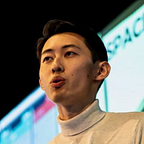Thoughts, As Australia Burns
A lesson on what could be done, still,
This article is first in the series of #VCSThursdayswithBrent, Venture Café Sydney is a member of the growing Venture Café Global Network — building a movement to enhance the innovation process in cities around the world.
Seen Through Red
On November 23rd 11:55am, I landed in Hawaii for a transit flight to Sydney, Australia. I knew that I would arrive in time for a meltdown, a descent that often felt surreal. Australia had been burning for almost two months following a prolonged drought. As days went by, I watched the numbers slowly grow out of proportion: 27 killed, 2,000 houses destroyed, 25 million acres burnt and half a billion animals gone. It was senseless, cruel and absurd. As a family, we decided to let the TV run 24/7: the despair was almost palpable. It dawned on us just how little we understood, watching those interviewed inches away from the ashes and ruins of homes lost, with resolve and pain in their eyes that was too real — we could only hope to fathom.
Venture for Good?
And there were many, many other things that we could only hope to do. Aside from RFS, Red Cross, Salvation Army and WWF donations, there seemed to be too much at stake and too little to do. As a student on break, I had just started working at Venture Cafe Sydney following a visit to their CIC office in Boston. Coming back to 7 News’ rising death toll and new evacuation announcements every day made me feel guilty and removed. Eden was burning. Kangaroo Valley was going up in smokes. Yet aside from wearing masks in Sydney CBD, we were blissfully oblivious, leading lives as normal.
On this, I knew I was not alone: Thursday weekly gatherings at VCS, usually bustling with innovator superheroes, became a hotbed of wildfire discussions. People talked about water bombers, funding for RFS, and cloud seeding at marijuana innovation workshops, during new year, and at the Kombucha bar. As an ambassador, I sensed great urgency; as a founder, I wondered what could happen if one of the ideas proves to work. VCS had a platform and a voice: what if this could be used to channel resources towards ventures for good?
Serve, RFS or Otherwise
And so it happened. January 30th was a start to a collaborative movement that I felt lucky and proud to be a part of. There was just about everyone: roundtable discussions led by experts in entrepreneurship, research and finance drew in curious attendees. It was particularly humbling that none of those experts professed to “know” — they made it clear that they were here to listen. A remark by Brian Hill, founder of FireHacks, captured this perfectly: “not anyone can be an RFS, but everyone can serve”.
It took conscious effort to put this into practice. To truly serve is to address a need, and quite often it requires oneself pulling back from a list of solutions. This, however, seems antithetical in the context of emergency response. Solutions are needed ASAP, deliberate for too long and it results in a certain type of paralysis — the very kind Michael Furey and his group, sought to avoid by seeking a quick and easy investment criteria for nimble disaster response startups.
Nevertheless the question remains — as Leigh Staas’ group did well to remind the room — as it was, about people, about human. It is imperative to detect better and faster, and to empower the communities that have been hurt the most. This became a singularly powerful message, as delivered by the Hon. Damien Tudehope MLC: to encourage inbound tours and make sure that money is flowing back into local communities. From fire recovery business portals to a trust-based neighbour network, the following pitch relief session showed just in how many different ways this could be done. The popular vote (and my personal favourite) went to Alan McGaw from Maddel, an emergency response veteran working across Phillipines and Fiji who built a retrievable and reusable house that could be set up in 15 minutes. It meant way more than a house — Alan reminded us how losing property leads to a crippling loss of self-worth and hope (with media sometimes feeds on that negative sentiment), and how the situation could be remedied with sensible policy from the local council.
This discussion was continued in a panel talk on community resilience and recovery. It was a first for me, sitting face-to-face with Phil Paterson, an RFS veteran, who’s had his home lost in the fire. To hear him downplay what it meant for him was commendable. It made me wonder just how much those on the frontline had to lose, and how much could be done still.
It was agreed that any rebuilding efforts would be interdisciplinary, and that moving to action is key. When I came in to usher the panelists for a photo (and accidentally broke into several conversations), I was glad to find out many were connecting with innovators in the audience already and discussing arrangements. A great reminder that there is simply no time to lose.
An opportunity to reflect, perhaps. It became clear that as the catastrophe storms on, those of us spared (temporarily) pursue after a purpose. All of us could be useful — what a powerful thing. In this, I wanted my purpose to be painting a picture of hope and a vision as to what could become. I wanted mine to be extending a helping hand and excelling at what I do, not in building drones or putting out fires, but in documenting what is noteworthy and human. One word, one Thursday at a time.
